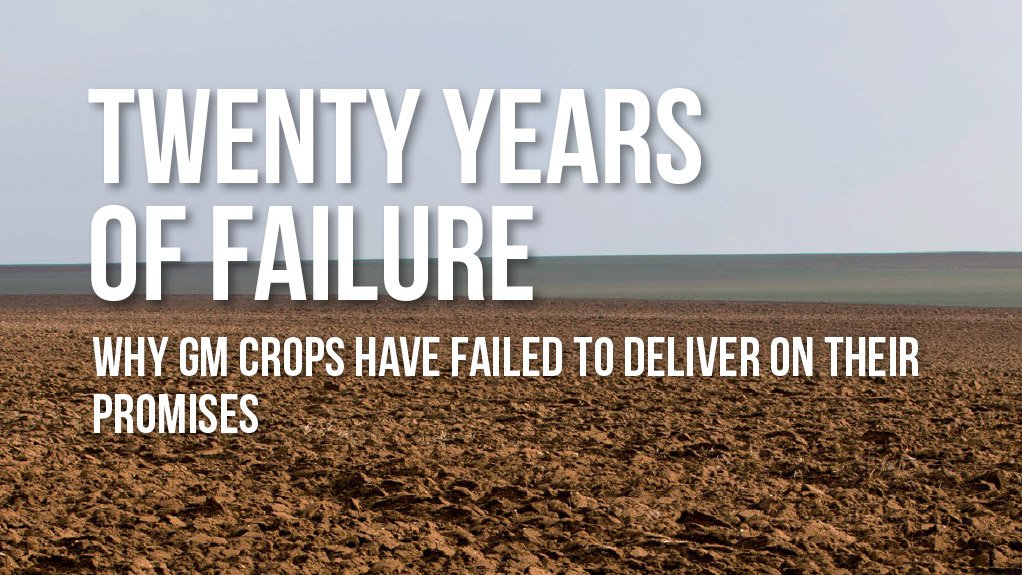- Twenty Years of Failure – Why GM crops have failed to deliver on their promises (Oct 2015)5.04 MB
Twenty years ago, the first genetically modified (GM) crops were planted in the US, alongside dazzling promises about this new technology. Two decades on, the promises are getting bigger and bigger, but GM crops are not delivering any of them. Not only was this technology supposed to make food and agriculture systems simpler, safer and more efficient, but GM crops are increasingly being touted as the key to 'feeding the world' and 'fighting climate change'.
The promises may be growing, but the popularity of GM crops is not. Despite twenty years of pro-GM marketing by powerful industry lobbies, GM technology has only been taken up by a handful of countries, for a handful of crops. GM crops are grown on only 3% of global agricultural land. Figures from the GM industry in fact show that only five countries account for 90% of global GM cropland, and nearly 100% of these GM crops are one of two kinds: herbicide-tolerant or pesticide-producing. Meanwhile, whole regions of the world have resisted GM crops. European consumers do not consume GM foods, and a single type of GM maize is cultivated in Europe. Most of Asia is GM-free, with the GM acreage in India and China mostly accounted for by a non-food crop: cotton. Only three countries in Africa grow any GM crops. Put simply, GM crops are not 'feeding the world'.
Why have GM crops failed to be the popular success the industry claims them to be?
Report by Greenpeace
EMAIL THIS ARTICLE SAVE THIS ARTICLE
To subscribe email subscriptions@creamermedia.co.za or click here
To advertise email advertising@creamermedia.co.za or click here











